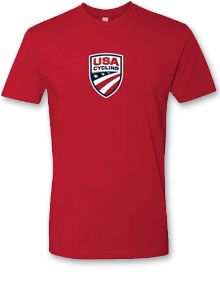Policy V: Cycling Officials Code of Ethics
Introduction
The duty of Cycling Officials is to act as impartial arbiters of cycling competitions. This duty carries with it an obligation to perform with accuracy, fairness and objectivity through an overriding sense of integrity.Although the vast majority of Cycling Officials work events contested by amateur athletes, it is vital every Cycling Official approach each assignment in a professional manner. Because of their authority and autonomy, Cycling Officials must have a high degree of commitment and expertise to their craft. This imposes on Cycling Officials the high ethical standard by which true professionals are judged.
Cycling Officials as "professionals" voluntarily observe a high standard of conduct, not because of fear of penalty, but rather out of personal character. They accept responsibility for their actions. This conduct has as its foundation a deep sense of moral values and use of reason which substantiate the belief that a given conduct is proper simply because it is.
The Code
The purposes of the Cycling Officials’ Code of Ethics are briefly summarized through the following two provisions:First, to provide cycling officials with a meaningful set of guidelines for their professional conduct and to provide them with agreed-upon standards of practice;
Second, to provide to others (i.e. athletes, managers, race organizers, fans, media) criteria by which to judge an official’s actions.
The integrity of cycling officiating rests on the integrity and ethical conduct of each individual official. This integrity and their conduct are the very basis of the future and well-being of bicycle racing and the effectiveness of USA Cycling.
The USA Cycling National Technical Commission (NTC) has adopted this Code. As such, cycling officials are expected to adhere to its principles as well. By doing so, the NTC has recognized the need to preserve and encourage confidence in the professionalism of cycling officiating. This confidence must be fostered within the "community" of Cycling Officials.
To these ends, USA Cycling and the National Technical Commission declares acceptance of this Code:
ARTICLE 1
Cycling Officials must be free of obligation to any interest other than the impartial and fair arbitration of cycling competitions. Without equivocation, any decision that is slanted by personal bias is dishonest and unacceptable. Officials shall maintain the basic tenets of officiating, which include history, integrity, neutrality, respect, sensitivity, professionalism, discretion and tactfulness.
ARTICLE 2
Cycling Officials must recognize that anything that may lead to a conflict of interest, whether real or apparent, must be avoided. Receiving gifts, favors, special treatment, privileges, employment, or any personal relationship, which can compromise the perceived impartiality of an official’s judgment, must be avoided. ARTICLE 3
Cycling Officials have an obligation to treat other Cycling Officials with professional courtesy and dignity and recognize that it is inappropriate to criticize other Officials publicly. Open conflict, disagreements or arguments between officials creates an atmosphere of unprofessional conduct and removes the leadership and authority required to manage a cycling event.
ARTICLE 4
Cycling Officials have a responsibility to continuously seek self-improvement through study of the sport, its rules and regulations, proper mechanics, and the techniques of event management. They have a responsibility to accurately represent their qualifications and abilities when requesting or accepting officiating assignments. Cycling Officials shall not make false or misleading statements regarding their qualifications, rating, experience, training or competence.
ARTICLE 5
Cycling Officials shall, on all occasions and to the best of their ability, serve the interests of cycling. They shall be aware of their personal responsibility and take all necessary action to carry it out. They shall attempt to eliminate from the officiating avocation/profession any practice that brings discredit to it.ARTICLE 6
Cycling Officials shall not abuse their position of authority and shall maintain a high ethical standard. Cycling Officials shall not be party to any action designed to unfairly limit or restrain access to officiating opportunities or officiating assignments. This includes selection for positions of leadership based upon economic factors, race, creed, color, religion, age, sexual orientation, physical handicap, or national origin.Note: As may be necessary, USA Cycling and the National Technical Commission will publish policies that will provide more details and information regarding specific subjects related to this Code of Ethics.
Related Articles
- Policy IV: Officials Assignment Guidelines - Jan 04, 2012
- Policy IVa: Nepotism - May 22, 2012
This Article Updated March 18, 2013 @ 10:33 PM For more information contact:



